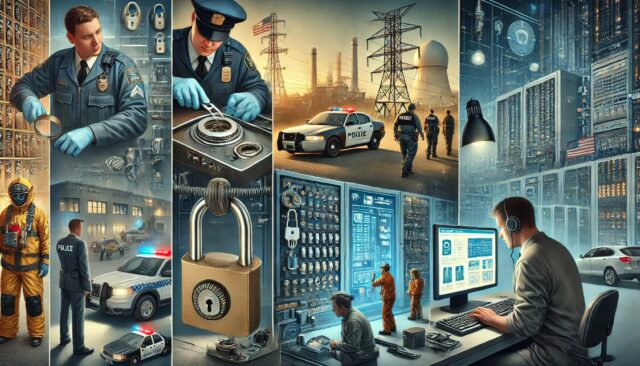Locksmiths have long been associated with the simple task of creating and managing locks and keys, we all familiar with locksmith services like these. However, in the world of national security, their role extends far beyond these traditional boundaries. This article explores the specialized skills and technologies that locksmiths bring to various security sectors, highlighting their critical contributions to national security.
Forensic Locksmithing
A forensic locksmith is an expert who can testify in court on scientifically verifiable information regarding locks and keys. They examine locks, keys, and security systems to determine how unauthorized entry or security breaches occurred.
Forensic locksmiths play an important role in assisting law enforcement agencies with investigations into break-ins and other security breaches. By analyzing locks and entry methods, they can provide crucial evidence that helps identify perpetrators and understand the techniques used in unauthorized entries. This branch of locksmithing requires a deep understanding of both traditional and modern locking mechanisms, as well as the ability to interpret subtle clues left behind at crime scenes.
Forensic locksmiths often collaborate with police and security agencies to reconstruct events leading up to a security breach. Their expertise can determine whether a lock was picked, bypassed, or tampered with, providing valuable insights that can lead to the apprehension of criminals and the prevention of future incidents.
Industrial and Safe Locksmithing
Securing critical infrastructure is an important concern for national security. Locksmiths specializing in industrial and safe locksmithing are tasked with protecting essential facilities such as power plants, data centers, and military installations. These environments require high-security locks and safes that can withstand sophisticated attacks.
Industrial locksmiths design and implement security solutions that include robust physical barriers and advanced locking systems. They are responsible for maintaining and upgrading these systems to ensure they remain effective against evolving threats. In military installations, for instance, locksmiths might work on securing weapons storage, classified information, and other sensitive areas, ensuring that only authorized personnel have access.
Cyber-Physical Security
The integration of locksmithing with cybersecurity represents a significant advancement in the field of national security. Modern security systems often combine physical locks with digital controls, creating a comprehensive approach to safeguarding assets. Advanced locking mechanisms are now part of broader security systems that protect against both physical and cyber threats.
Locksmiths involved in cyber-physical security must be proficient in both traditional locksmithing and digital security technologies. They work on systems that include biometric locks, electronic access controls, and networked security solutions. These systems can be monitored and controlled remotely, providing real-time responses to security incidents.
The National Security Agency (NSA), for example, has a long history of involvement in both physical and digital security. Their expertise in cryptography and lock-picking underscores the importance of integrating locksmithing skills with cybersecurity measures to protect national interests.
Conclusion
Locksmiths play an indispensable role in national security, extending far beyond traditional lock and key solutions. Through forensic locksmithing, industrial and safe locksmithing, and the integration of cyber-physical security, they contribute to the protection of critical infrastructure and sensitive information. Real-world case studies underscore the importance of their expertise in safeguarding national interests. As security threats continue to evolve, the role of locksmiths in national security will remain crucial, adapting to new challenges and technologies.





